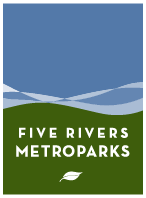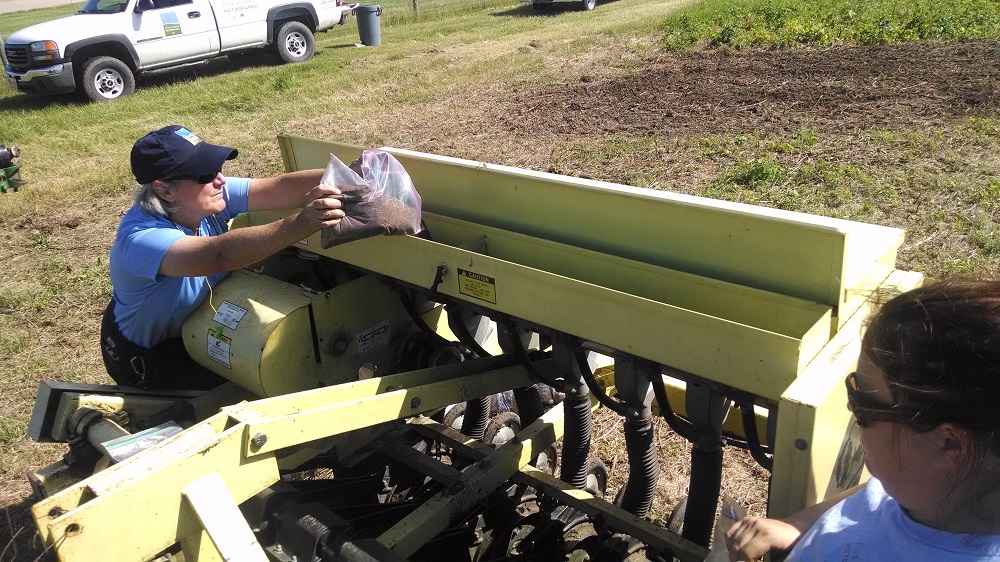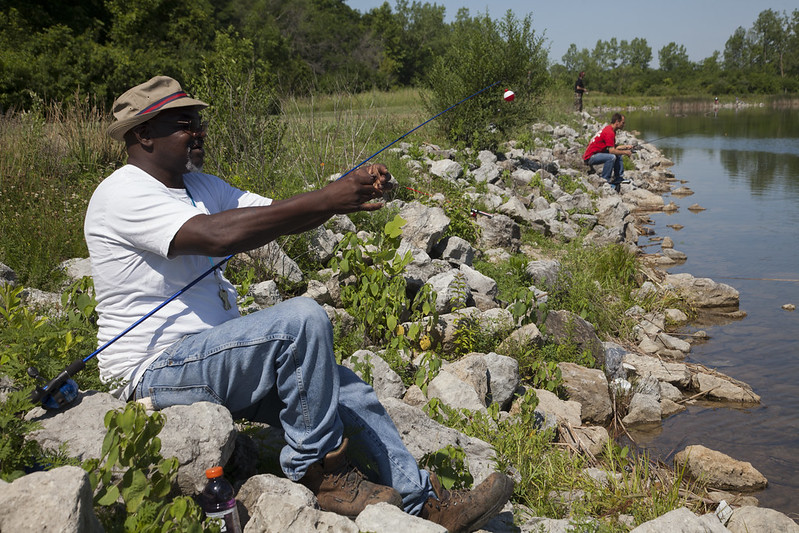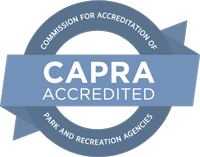Published October 2, 2024
Guest Article: River Stewards Engage With Community, Volunteer in MetroParks

While we paddle, pause to consider how it feels to see Dayton from here in the river, rather than seeing the river from the city streets; if you take the time to look, your understanding of our city and our river could change completely,” explains Eleanor Yates-McEwan to a group of University of Dayton students kayaking in our watershed for the first time. Yates-McEwan is one of UD’s River Stewards, a dedicated group of around 40 students who engage both the campus community and the wider Dayton community about the importance of the Great Miami River and its tributaries. Each year the stewards complete more than 2,000 hours of service that advance the mission of UD’s Rivers Institute to empower communities to be stewards of rivers. They’re often organizing park cleanups, managing invasive species, and educating young people about our environment—last year’s senior cohort, for instance, developed activities that engage youth in the content formerly featured in a mobile “RiverMobile” but now permanently on display at the Boonshoft Museum of Discovery.
The Rivers Institute was imagined during a 17-mile paddle down the Great Miami River, and every August, stewards return to campus early to embark on that same paddle. Putting in just below the Taylorsville Dam, students learn from partners such as Miami Conservancy District’s Sarah Hippensteel Hall about the system of dams and levees that have protected our community since the devastating 1913 flood. Professors teach the newest members of the program about our aquifer and the geology that blesses us with healthy drinking water, as well as the creatures that inhabit the watershed and the tiny macroinvertebrates that indicate water quality. Along the way the stewards form bonds that will keep them close for their three years in the program, becoming friends as they take in the beautiful scenery and fresh air. As Alexandria Ford puts it, “We build this community through the smiles and laughs we share along the river. It is a special experience to meet new faces at the beginning of the week and become the best of friends just a few short days later”. After two days and about 12 hours of paddling, they needed the support of those new friendships to make it all the way to the takeout at SunWatch Historical Village.

For many of the stewards, the orientation paddle isn’t just a space to learn about our watershed and the partner organizations that steward it. Many come in with very little experience on a kayak or with paddlesports in general, and there’s usually one or two who can’t swim. Our partners with Five Rivers MetroParks kick off orientation week with safety training, teaching stewards how to size their boats and life jackets, how to safely exit a tipped kayak, and how to empty it of water and re-enter. The team guides students along the full 17-mile paddle, offering tips for using the correct stroke and spotting everyone as they navigate natural features in the upper reaches of the river and brave the shoot installed at RiverScape MetroPark. “Having their help on the river allows the experience to be even more enjoyable and feel really secure!” writes junior steward Justin Mitra, who embraces any opportunity to spend more time on the water. Stewards reciprocate Five Rivers’ support by serving as safety boaters at the annual Wagner Subaru Outdoor Experience, and like other members of the program, Justin can’t wait to pay forward the love of kayaking that was nurtured on the water every August.
Many stewards continue to volunteer with our parks year-round. Noah Garrick, a graduating senior studying engineering, greets patrons of 2nd Street Market as they shop for local foods at their Saturday markets. In Noah’s experience, “2nd Street Market offers the community of Dayton access to fresh produce while providing an infectiously fun atmosphere. I love working with the people there and have told all my friends about it. I cannot wait to go back!” Others dedicate hours to beautifying our wonderful botanical gardens by preparing beds at Wegerzyn Gardens or clearing trails for mountain biking at Huffman MetroPark. While these parks preserve important habitats that protect our waterways and buffers them from the risks posed by human development, the parks are also vibrant spaces where community members can connect with the natural world. Whether through direct service restoring habitat and protecting the natural resources central to communal, economic, and ecological vitality in the Dayton region, or through engaging the public about the benefits of good stewardship, these students spend three years contributing to a healthier and more sustainable future for the Miami Valley.
Dr. Zachary Piso is Assistant Professor of Philosophy and a Sustainability Scholar through the Hanley Sustainability Institute. His work explores the social and ethical values at stake in environmental science, especially in interdisciplinary environmental research that draws on the social sciences in explanations of environmental change and resilience.
Recently, he explored ethical and epistemic questions arising in food systems research, including an ongoing study of ecological citizenship and environmental governance in Rust Belt urban agriculture. These public philosophical engagements emphasize stakeholder engagement and participatory methodologies that tie together interests in environmental philosophy, philosophy of science and American pragmatism.





